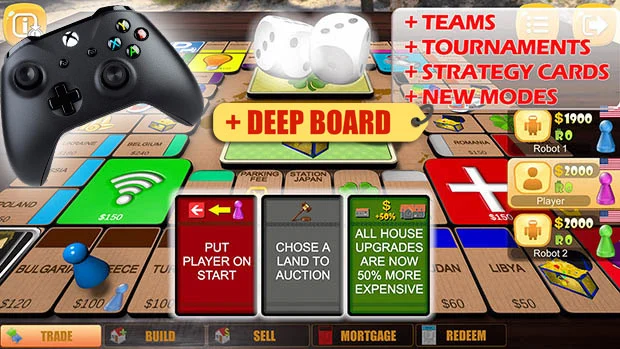ONLINE RENTO (monopoly)
SCREENSHOTS
DESCRIPTION
Rento Fortune (similar to Monopoly) is free online board game for two, three or four players. It's the fastest business game, which you can play online with friends.. Read more at Rento.com
Play free RENTO or play other board games online.
Play free RENTO or play other board games online.
RANKINGS
- TOP PLAYERS
- ACTIVE PLAYERS TODAY
- TOP DAY PLAYERS
- TOP WEEK PLAYERS
- TOP MONTH PLAYERS
RULES OF RENTO
Monopoli is a board game. It supports 2, 3 or 4 players.
Players take turns in order, with the initial player determined by chance before the game. A typical turn begins with the rolling of the dice and advancing their piece clockwise around the board the corresponding number of squares.
If a player rolls doubles, they roll again after completing their turn. If a player rolls three consecutive sets of doubles on one turn, the player has been "caught speeding," and the player is immediately sent to jail instead of moving the amount shown on the dice for the third roll, ending the player's turn.
A player who lands or passes the Go space collects $200 (unless they automatically go to jail)
Players who land on either "Income Tax" or "Super Tax" pay the indicated amount to the bank.
If a player lands on Luck or Community Treasure, they draw the top card from the respective pile and obey its instructions. This may include collecting or paying the bank a specified amount of money, or automatically moving to a specific space on the board. Two types of cards that involve jail, "Go to Jail" and "Get Out of Jail Free", are explained below.
A player will land in jail if they land on "Go to Jail", throw three straight doubles in a turn, or draw a Community Treasure card or Luck card saying "Go to Jail".
When a player is sent to jail they move there directly ("Do not pass Go. Do not collect $200.") and their turn ends.
If the player is not "sent" to jail but just lands on that space, they are "Just Visiting", incur no penalty and move in the usual manner on their next turn.
If a player is in jail, they do not take a normal turn and must either pay a fine of $50 to be released from jail, use a Luck or Community Treasure card "Get Out of Jail", or attempt to roll doubles on the dice. If a player fails to roll doubles, they lose their turn.
If they fail to roll doubles three times, they are released from the jail automatically.
While a player is in jail, they can not collect rent. However, they may sell, trade and mortgage properties, purchase buildings, participate in auctions.
If a player does roll doubles to exit Jail, they may immediately move according to the roll.
If the player instead pays the $50 fine or uses a "Get out of Jail Free" card and then rolls doubles, they are required to move the amount shown on the dice and then roll again.
If the player lands on an unowned property, whether street, railroad, or utility, they can buy the property for its listed purchase price.
If they decline this purchase, the property is auctioned off by the bank to the highest bidder, including the player who declined to buy.
If the property landed on is already owned and unmortgaged, they must pay the owner a given rent, the price dependent on whether the property is part of a set or its level of development.
When a player owns all of the properties in a color group and none of them are mortgaged, they may develop them during their turn or in between other player's turns. Development involves buying houses or hotels from the bank and placing them on the property spaces, and must be done even across the group.
Once the player owns an entire group, they can collect double rent for any undeveloped properties within it.
Although houses and hotels cannot be built on railroads or utilities, the given rent also increases if a player owns more than one of either type.
Properties can also be mortgaged, although all developments on a monopoli must be sold before any property of that color can be mortgaged or traded. The player receives money from the bank for each mortgaged property (half of the purchase price), which must be repaid with 10% interest to unmortgage.
Houses and hotels can be sold back to the bank for half their purchase price.
Players cannot collect rent on mortgaged properties; however, trading mortgaged properties is allowed.
A player who cannot pay what they owe is bankrupt and eliminated from the game.
To avoid bankruptcy, player can sell houses and mortage properties.
If the player is unable to pay off all of his debts, he declares bankruptcy and all of his properties become owned by the bank.
The winner is the remaining player left after all the others have gone bankrupt.
Players take turns in order, with the initial player determined by chance before the game. A typical turn begins with the rolling of the dice and advancing their piece clockwise around the board the corresponding number of squares.
If a player rolls doubles, they roll again after completing their turn. If a player rolls three consecutive sets of doubles on one turn, the player has been "caught speeding," and the player is immediately sent to jail instead of moving the amount shown on the dice for the third roll, ending the player's turn.
A player who lands or passes the Go space collects $200 (unless they automatically go to jail)
Players who land on either "Income Tax" or "Super Tax" pay the indicated amount to the bank.
Luck/Community Treasure
If a player lands on Luck or Community Treasure, they draw the top card from the respective pile and obey its instructions. This may include collecting or paying the bank a specified amount of money, or automatically moving to a specific space on the board. Two types of cards that involve jail, "Go to Jail" and "Get Out of Jail Free", are explained below.
Jail
A player will land in jail if they land on "Go to Jail", throw three straight doubles in a turn, or draw a Community Treasure card or Luck card saying "Go to Jail".
When a player is sent to jail they move there directly ("Do not pass Go. Do not collect $200.") and their turn ends.
If the player is not "sent" to jail but just lands on that space, they are "Just Visiting", incur no penalty and move in the usual manner on their next turn.
If a player is in jail, they do not take a normal turn and must either pay a fine of $50 to be released from jail, use a Luck or Community Treasure card "Get Out of Jail", or attempt to roll doubles on the dice. If a player fails to roll doubles, they lose their turn.
If they fail to roll doubles three times, they are released from the jail automatically.
While a player is in jail, they can not collect rent. However, they may sell, trade and mortgage properties, purchase buildings, participate in auctions.
If a player does roll doubles to exit Jail, they may immediately move according to the roll.
If the player instead pays the $50 fine or uses a "Get out of Jail Free" card and then rolls doubles, they are required to move the amount shown on the dice and then roll again.
Properties
If the player lands on an unowned property, whether street, railroad, or utility, they can buy the property for its listed purchase price.
If they decline this purchase, the property is auctioned off by the bank to the highest bidder, including the player who declined to buy.
If the property landed on is already owned and unmortgaged, they must pay the owner a given rent, the price dependent on whether the property is part of a set or its level of development.
When a player owns all of the properties in a color group and none of them are mortgaged, they may develop them during their turn or in between other player's turns. Development involves buying houses or hotels from the bank and placing them on the property spaces, and must be done even across the group.
Once the player owns an entire group, they can collect double rent for any undeveloped properties within it.
Although houses and hotels cannot be built on railroads or utilities, the given rent also increases if a player owns more than one of either type.
Mortgaging
Properties can also be mortgaged, although all developments on a monopoli must be sold before any property of that color can be mortgaged or traded. The player receives money from the bank for each mortgaged property (half of the purchase price), which must be repaid with 10% interest to unmortgage.
Houses and hotels can be sold back to the bank for half their purchase price.
Players cannot collect rent on mortgaged properties; however, trading mortgaged properties is allowed.
Bankruptcy
A player who cannot pay what they owe is bankrupt and eliminated from the game.
To avoid bankruptcy, player can sell houses and mortage properties.
If the player is unable to pay off all of his debts, he declares bankruptcy and all of his properties become owned by the bank.
The winner is the remaining player left after all the others have gone bankrupt.



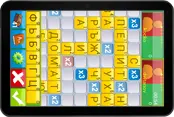
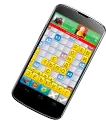


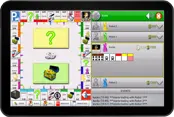
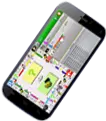
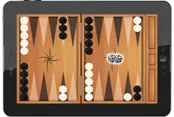
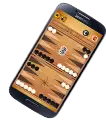
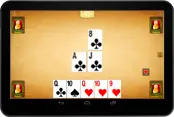
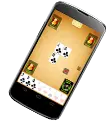









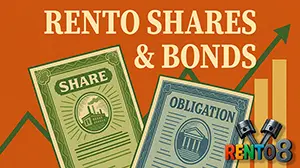
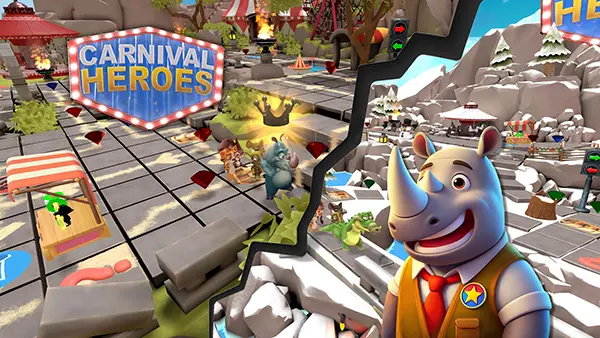
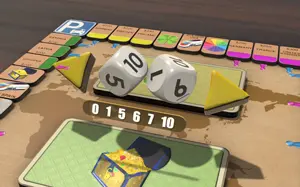 II. DICE CONFIGURATOR
II. DICE CONFIGURATOR